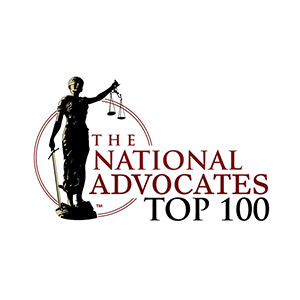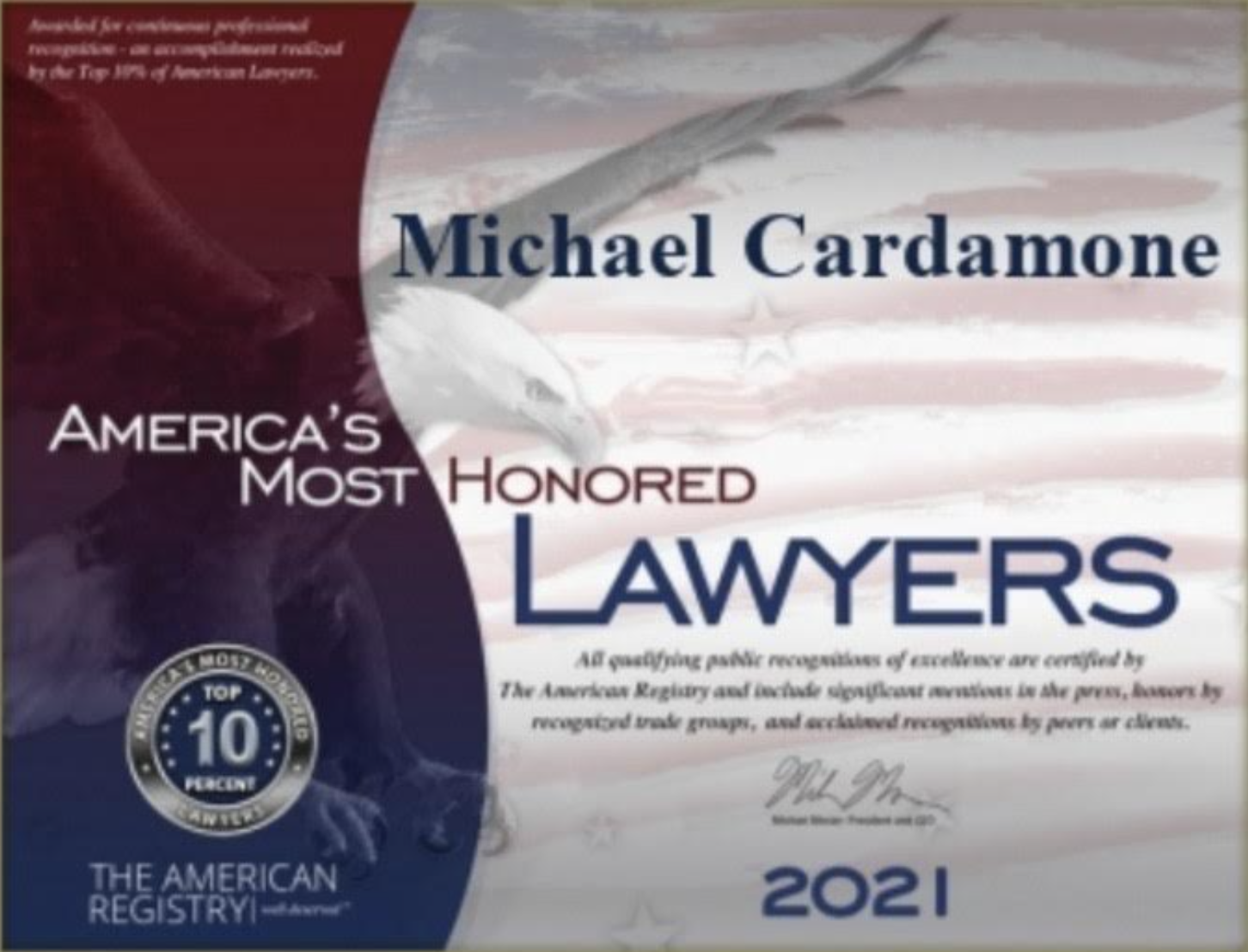When you settle a Pennsylvania Workers’ Compensation case via Compromise & Release- the name of our form for global/lump sum settlements, there are many issues to consider.
What is Compromise and Release?
But before we dive into those issues, lets understand what Compromise & Release means in a PA Work Comp case:
When you settle a workers’ compensation case via compromise and release it means that all parties including the injured worker, employer or the company, the insurance company came to an agreement regarding the workers’ compensation benefits offered in compensation to the injury, disability, or illness caused due to a workplace accident.
The compromise and release agreement bypass the courtroom hearing and each party signs to certain terms (or compromise) and conditions that are detailed in the release contract. Hence, the name compromise and release. The agreement is not legally binding unless all the parties involved agree to the terms of the agreement. The compromise and release option for the workers’ compensation is then put in front of a judge in Pennsylvania who determines if the individuals understand the terms to the fullest and affirms if they agree to their role in the contract.
Compromise & Release: The Issues To Consider
Following are the issues to consider when settling a workers’ compensation case in Pennsylvania through Compromise and Release contract:
- Are the names of the parties listed correctly and spelled properly?
- Is the date of injury accurate?
- Does the C & R properly reflect the accepted body part and diagnosis?
- Is the amount of the settlement listed accurately?
- Is there language explaining what is happening with medical benefits and if they are ending, what is the end date?
- Are any petitions going to remain open or will any pending petitions be marked as withdrawn or granted?
- Are there any child support liens and how will any arrears be dealt with?
- Is Medicare an issue, why or why not?
- If there is a resignation required, make sure there is consideration and that it’s a separate document- the WCJ does not have jurisdiction over the issue.
- Is the Social Security Disability language added and calculated properly?
- Any Medicaid liens?
- Did you get approval for and insert any litigation costs?
- Does client understand subrogation concept regarding 3rd party claims?
- If there were any credits being discussed prior to C & R, are they being waived? (UC benefits, etc.)
- Does client understand finality of C & R- that even if conditions worsen, they cannot come back and ask for additional benefits once Order approving C & R is entered?
- Do the parties waive the applicable 20 day appeal period?
These are just some of the issues that must be carefully analyzed when entering into a Pennsylvania Workers’ Compensation Compromise & Release Agreement.
Mutual and Unilateral Mistakes of Fact
In the case of Hoang v. WCAB (Howmet Aluminum Casting), (will refer to case as Hoang hereinafter) filed by the Commonwealth Court on August 20, 2012, an injured worker sought to have an Order approving a Compromise & Release Agreement (i.e., settlement agreement) overturned based on a “mutual mistake of fact” regarding unpaid medical bills. The factual predicate is set forth fully in the Decision, but essentially what happened is that after the Work Comp Judge approved the settlement, (which provided for a lump sum of $9,900) an unpaid medical bill surfaced for $37,674.00. The language in the Compromise & Release Agreement, however, specifically stated, “This Agreement resolves all indemnity and medical to which [Claimant] may have been entitled for any injury that [Claimant] sustained while working for [Employer]. This represents a full and final settlement of any claim, both past, present, and future, that [Claimant] had against [Employer]. Complicating the matter was the fact that Claimant’s testimony regarding his understanding of the C & R Agreement, was done through his son acting as translator. Based on that testimony, the Work Comp Judge found that the Claimant understood the full legal significance of the Agreement (this is the legal standard for the settlements).
Thereafter, the Claimant filed review and penalty petitions which got assigned to a new Work Comp Judge. Claimant argued that the WCJ should rescind the C & R Agreement based on a mutual mistake of fact since, as Claimant alleged, both parties were mistaken as to the fact that medical bills remained unpaid as of May 7, 2009- the date of the settlement. The WCJ rejected Claimant’s arguments finding that there was no evidence Employer was mistaken at the time of the C & R Agreement was executed and no discussion was entered into at the C & R Hearing regarding medical expenses. Claimant appealed to the Work Comp Appeal Board which agreed with the WCJ, holding Claimant failed to produce clear evidence that Employer was mistaken as to the unpaid bills or that Employer knew of a unilateral mistake on Claimant’s part.
The mutual mistake of fact theory, posited by Claimant, rests on the idea that both parties were mistaken regarding the fact that medical bills remained unpaid as of May 2009 – that this fact is material and has a material effect on the parties’ bargain because the medical bills are substantial and Employer was obligated to pay them under the PA Work Comp Act. The Commonwealth Court in Hoang noted that evidence demonstrating a mutual mistake of fact must be clear, precise and indubitable. (citing Thrasher v. Rothrock, 377 Pa. 562, 105 A.2d 600 (1954) (holding that evidence of a confusing dictation of contract terms were not clear, precise and indubitable evidence of a mutual mistake). The Court looked to the North Penn Sanitation case to analyze a fact pattern where the Court upheld a Work Comp Judge’s determination that a mutual mistake was present, and distinguishing it from the case at hand. In North Penn Sanitation, the parties failed to include Claimant’s blindness among his work-related injuries. But the Claimant didn’t read the C & R Agreement and proceeded pro se (without counsel). The Court also noted that Claimant had presented credible testimony and medical evidence showing he had lost the use of both eyes for all intents and purposes as a result of the work injury and that Employer’s insurer was aware of the Claimant’s injuries before the parties negotiated the settlement. In Hoang, however, the Court found that Claimant failed to produce any credible evidence showing the Employer was mistaken regarding the unpaid medical bills at the time of the settlement.
As an alternative theory, Claimant argued to the Commonwealth Court that he operated under a unilateral mistake of fact regarding a material element of the agreement- the unpaid medical bills, and that Employer had good reason to know of Claimant’s mistake at the time of the settlement. Here, the Court looked to Farner v. WCAB (Rockwell International), 869 A.2d 1075 (Pa Cmwlth. 2005) where it held that collateral estoppel barred a claimant’s petition to set aside a C & R on the basis of mutual mistake. In that case, the doctrine of unilateral mistake was discussed- with the Court holding “Generally, a unilateral mistake which is not caused by the fault of the opposing party afford no basis for relief. However, if a party to a contract knows or has reason to know of a unilateral mistake by the other party and the mistake, as well as the actual intent of the parties, is clearly shown, relief will be granted to the same extent as if a mutual mistake existed.”
In Hoang, the Court, applying the concept above, found that Claimant failed to present credible evidence concerning Employer’s intent. Importantly, the Court also found that the record did not contain evidence that Claimant communicated to Employer, before or at the time of settlement, his belief that the C & R Agreement did not apply to unpaid pre-existing bills.
Before concluding, the Court also analyzed Claimant’s final argument that two paragraphs of the C & R Agreement conflicted, and that therefore the agreement should be construed in favor of the more specific provision which the Claimant contended, results in a finding that the C & R Agreement foreclosed only Employer’s responsibility for future medical bills. The Court rejected the argument, finding that Clamant failed to demonstrate conflicting language that would require the Court to interpret the C & R as applying only to future medical expenses.
What is the moral of the story here? Be specific in the Compromise & Release Agreements! Spell out language regarding past medical bills and what happens with them. For example, try to include language such as “the parties agree that all reasonable, necessary, and related medical bills for treatment prior to the C & R Hearing will be paid by Employer/Insurer so long as the bills are properly presented in accordance with the Act”. This situation arises frequently. Medical bills often surface after a settlement hearing and you need to make sure there is language in the C & R addressing the issue ahead of time. Additionally, make sure that when you are on the record at the C & R Hearing, that you question Claimant about this situation. Compromise & Release Agreements can become routine for work comp practitioners, but don’t let that routine cause your guard to drop. Carefully craft case- specific language covering all of your bases.
The Role of a Witness
Black’s Law Dictionary defines the term witness as: “In general, one who, being present, personally sees or perceives a thing; to subscribe one’s name to a deed, will, or other document, for the purpose of attesting its authenticity, and proving its execution, if required, by bearing witness thereto.”
Witness, witness, witness! Everywhere witness. This fundamental legal concept is used in a wide variety of legal circumstances, whether in the execution of a will, or when we simply perceive something to take place, like a car accident. Indeed, a legal witness often supplies us with affirmation, truth, acknowledgement, or validity. However, in the context of a workers’ compensation settlement agreement, otherwise known as the Compromise and Release, I am proposing that this concept be abandoned.
By way of background, the Pennsylvania Compromise and Release is a settlement agreement that must specifically state the terms relating to an injured worker’s wage loss and medical benefits. Unlike a personal injury settlement agreement, the terms of the Compromise and Release must be reviewed before a Workers’ Compensation Judge at a hearing in which the judge must determine whether the claimant understands the full legal significance of the settlement. A stenographic record is made at the hearing.
Further, the Compromise and Release must be signed by the claimant and witnessed by two people. Alternatively, the claimant’s signature must be notarized before the hearing takes place. The witness requirement is unnecessary, however, because a claimant is asked to verify her signature at the hearing.
Moreover, questions are asked to the claimant verifying the exact terms relating to the settlement amount and the parties’ respective obligations regarding medical bills. Other questions are asked to make certain that the claimant knowingly signed the agreement, without coercion and without being under the influence of any substances which would affect her mental abilities. This process, in and of itself, is a strong safeguard to any fraud. As such, the witness requirement is an unnecessary and impractical burden since the claimant, in her very own words, authenticates her signature and verifies the terms of the agreement before a judge who hears testimony on the record.
But even if one believes that the witness requirement is a precaution that we should not abandon, there is a second impracticality — and this has to do with the form itself. Two witnesses must provide their signature on the appropriate lines of the Employee Certification page — the last of the four-page Compromise and Release. However, there are no lines for a witness to print her name or to leave an address or phone number. As such, if there is ever a dispute about a particular claimant’s signature, how will the parties or the judge track down the witnesses when the only trace is an unintelligible signature?
Moreover, having seen hundreds of Compromise and Release agreements executed at workers’ compensation hearings over an eight-year span, I have rarely, if ever, seen a claimant’s attorney secure a witness who actually “being present, perceives a thing”- namely, the claimant signing the Compromise and Release.
Instead, the claimant’s attorney normally secures his client’s signature, and subsequently finds other attorneys who are waiting for their own cases, to sign as a witness. This saves precious time in a situation where the claimant’s attorney is often: 1) juggling one or more hearings and clients, 2) reviewing the agreement for mistakes, and 3) executing the accompanying settlement documents such as a resignation or general release. It tends, therefore, to be treated as an annoying formality
With recent changes in the law requiring that considerations be made to Medicare as well as child and spousal support liens, wouldn’t it be nice to streamline, even if in a small way, the increasingly tedious process of settling a workers’ compensation case?















